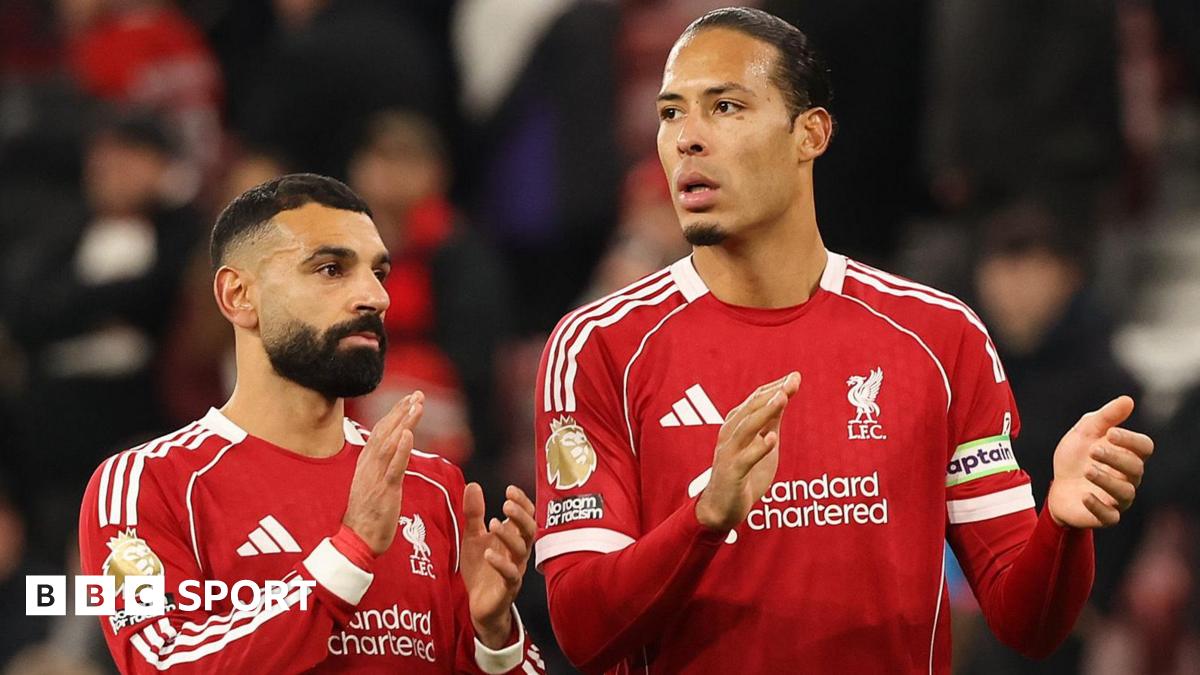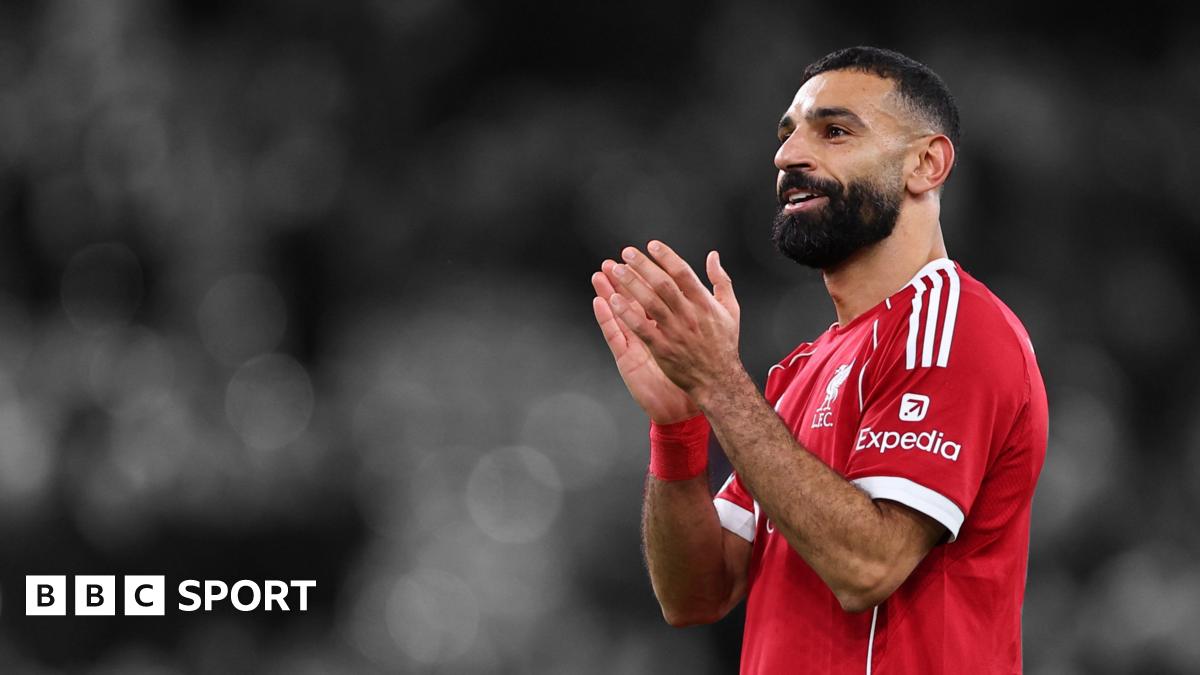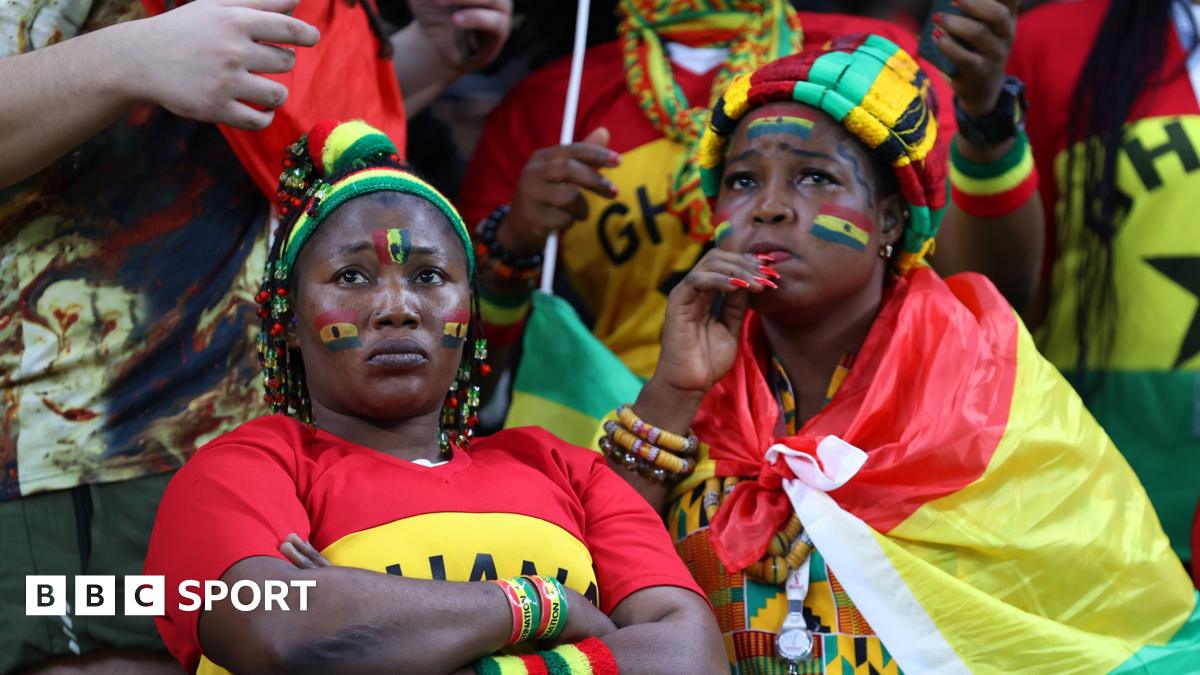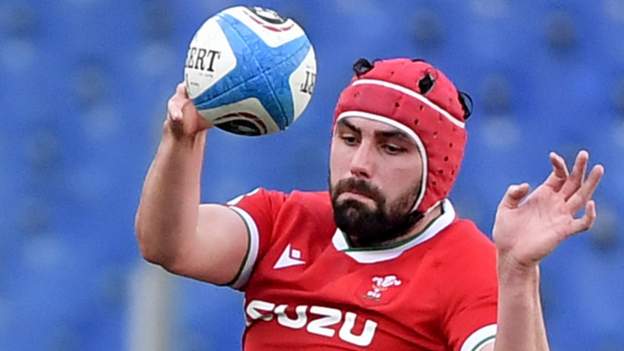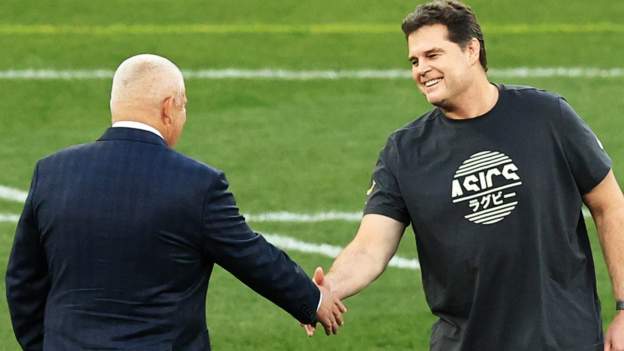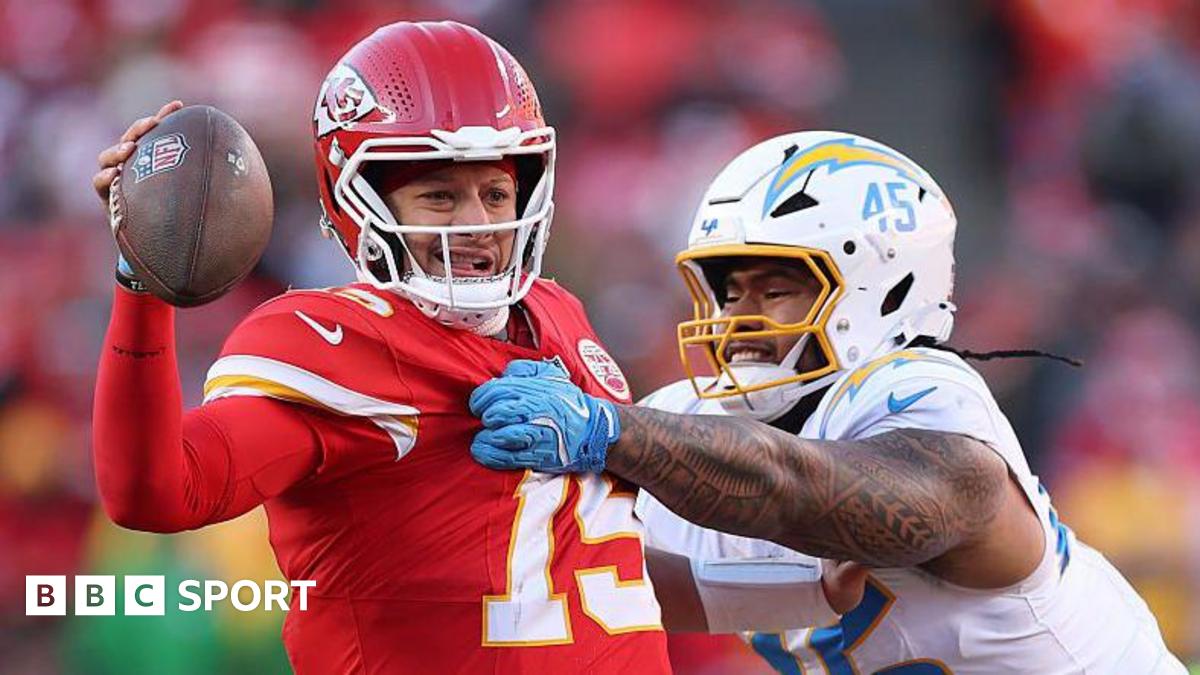Welsh Rugby Union (WRU) chief executive Steve Phillips says the 60-cap international rule will continue despite the imminent departure of lock Cory Hill.
Hill, 29, was released for the summer Tests against Canada and Argentina after telling Cardiff of his desire to join a team outside Wales.
This makes him ineligible for the national side.
“There will always be exceptions and Cory is one of those,” said Phillips.
A move to a team outside Wales renders players ineligible to play for Wayne Pivac’s side unless they have won 60 caps or more, a rule that was created in 2017 and called the Senior Player Selection Policy (SPSP).
Hill has won 32 caps so when his ambitions to move from Cardiff surfaced, he was omitted by Wales and replaced in the summer squad by Matthew Screech.
“We are disappointed to see an experienced international leaving Wales, but that remains Cory’s prerogative,” added Phillips.
“In general we think the policy has worked well.
“There have been many examples of players returning like Josh Adams and Ross Moriarty to Wales because of it and numerous situations where players have stayed because they can represent their country.
“The regions do benefit from access to the Welsh players while it is in place.
“The policy is always up for discussion. If it needs to change or adapt for the benefit of Welsh rugby that will be considered.”
Japan is the expected destination for Hill with former Wales centre Hadleigh Parkes having moved there in 2020, but Phillips is confident Hill’s departure will not spark an exodus.
“It is a different threat from a different time,” added Phillips.
“Previously the conversation was about a move to England or France, it seems Japan is the new attraction.
“It is a balance between that and wanting to play for Wales and we have to respect everybody’s decision.”
Welsh regions are not able to compete with Japan club wages with their financial disadvantages exacerbated by the Covid-19 pandemic.
Financial future
A funding agreement has been reached by the WRU and regions up until 2023.
The Professional Rugby Board (PRB), which has representatives from the regions and WRU, runs the professional game in Wales.
Under the new agreement, funding will rise to £23.5m between Cardiff, Dragons, Ospreys and Scarlets by 2023.
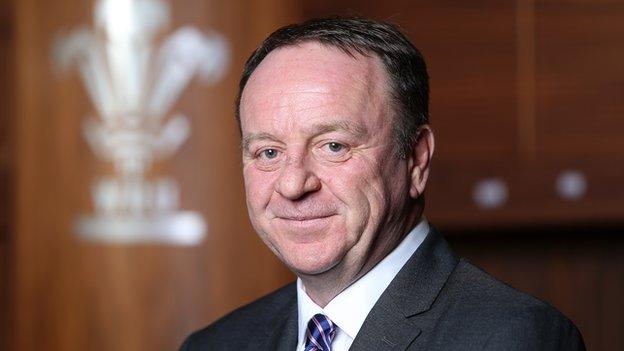
“The discussions were undertaken in a positive manner with a common goal in mind,” insisted Phillips.
“It was about providing certainty in these uncertain times. The agreement is a positive step for the PRB and credit to all the members.
“We have agreed funding over the next three years. We have got through the pandemic so far and look forward to the future of the professional game. I would like to think it supports our sustainability.”
The funding is less than the £26m the regions were due to be handed last season before the pandemic struck. So did the regions want more?
“You will have to ask them that,” added Phillips.
“You know what rugby is like, you could always do with some more, but it is about getting the balance right.
“At the moment it’s just something to provide something certain in uncertain times over the next couple of years. We will look to continue to refresh and see what the future holds for us all.”
Phillips continues to resist providing more short-term money into the regions despite extra revenue with the benefit of £51m over five years.
The announcement of a partnership between Six Nations Rugby Ltd and private equity firm CVC Capital Partners, who acquired a 14.3% stake in the tournament, means the six unions have received a financial boost.
The WRU insists investment should be used for long-term capital projects such as its new hotel in Cardiff and a proposed Principality Stadium roof walk.
“I have the same answer as before,” added Phillips.
“It’s all about replacing income streams we are going to lose by selling a share of the Six Nations to CVC.
“It’s the right thing to secure the long-term income streams because that is what is going to make Welsh rugby sustainable.”
The £26m projection for the 2020-21 dropped to £3m because of Covid-19 with the WRU negotiating a £20m loan on behalf for the four regions under the Coronavirus Large Business Interruption Loan Scheme (CLBILS) with NatWest bank.
The loan was to enable Wales’ four professional teams to avoid financial collapse, but the regions are responsible for repayments.
Phillips says attempts to renegotiate the terms of that loan are ongoing, with the first repayment instalment due this month covered by the governing body.
“Positive conversations are ongoing with Welsh government and this remains a priority,” added Phillips.
“In terms of repayment, the first one has been dealt with by the WRU and in turn we have rescheduled payment terms with the regions as we work with the Welsh government for a satisfactory conclusion.
“We recognise they have a lot on its plate at the moment and we respect that, but it feels we are moving in the right direction.”
Phillips says having a return to capacity crowds in the 2021-22 season at Principality Stadium for seven home Wales games is “critical” to the game’s finances.
“Of the £23m for next year, that is going to be massively dependent on near-to-full houses in the autumn for the four matches and we have three [2022] Six Nations home games,” said Phillips.
“We’ve got through the tunnel as best we were able, we now need to keep on top as you’re never sure what’s around the corner.
“In terms of commercially and financially 15 months on, I’m optimistic… and it’s all about how quickly we can get back to normality.”


